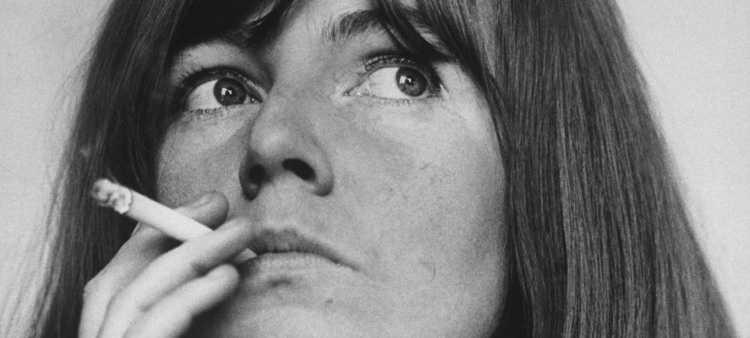Blue Road: The Edna O’Brien Story (O’Shea, 2024)
Blue Road is a sad film, at times angry but never bitter. The title originates from a line in one of O’Brien’s early books that her husband insisted was wrong and needed to be changed since blue roads do not exist. The encounter becomes an apt symbol for her life journey, with O’Brien saying she “clung” to the line in the face of a man who needed always to be right, even when mansplaining her own literary output. In one of several poignant yet enraging diary entries, O’Brien recalls being forced to sign over her royalty check to that same man…who gave her a “small amount of it for each week’s housekeeping.”
Much later, her refusal to sign another royalty check gets her violently choked. She finally capitulates, but she also leaves the house the same night.
Not surprisingly, white men are not faring too well at this year’s Full Frame Documentary Film Festival, with patriarchy also being a major point of contention in Helen and The Bear. If I found O’Brien a bit more sympathetic than Helen,at least one reason is that marriage is hardly the only institution infected by patriarchy. The film comes with plenty of receipts — condescending interviews, scathing editorials, personal anecdotes — to show just how viciously Ireland went after a woman who dared to write about sex — and to do so more successfully than the men who were trying to do the same!
The film is also helped by its scope. It contains a lengthy on-camera interview with the author in her nineties. O’Brien has an old soul’s retrospection, but she lost none of her ability to articulate herself with grace an precision. The juxtaposition of a young woman’s diaries with an old woman’s recollections provides the narrative with emotional and tonal variance.
I would have liked to have a scene a bit more about O’Brien’s literary influence beyond the “gee she’s great” testimonial from contemporary writers. In particular, the parts dealing with her novels set in Northern Ireland feel a bit rushed, especially in light of the claim that House of Splendid Isolation is about “male violence.” Given the early linking of patriarchy to interersonal violence, I was anxious to see just she understood the connections between power, hierarchy, and violence in the political sphere. We are told that she was criticized as an outsider dabbling in a conflict she she had no right to cover, but we don’t get as much analysis of her novels as we do assurances of their greatness.
But at the end of the day, what sticks out about Blue Road is the spirit of a woman who had to cling tightly to a conviction that she she, like all women, should be allowed to participate fully in every arena of public life.

